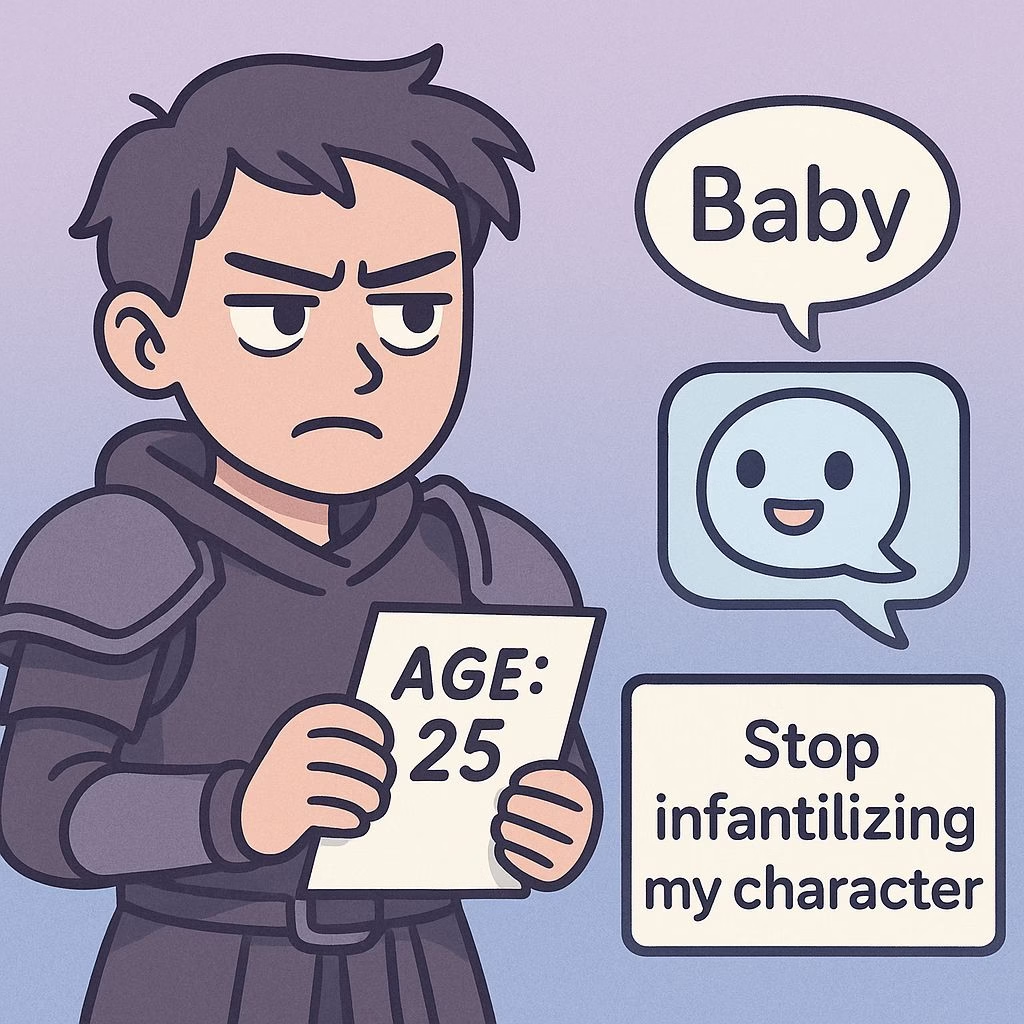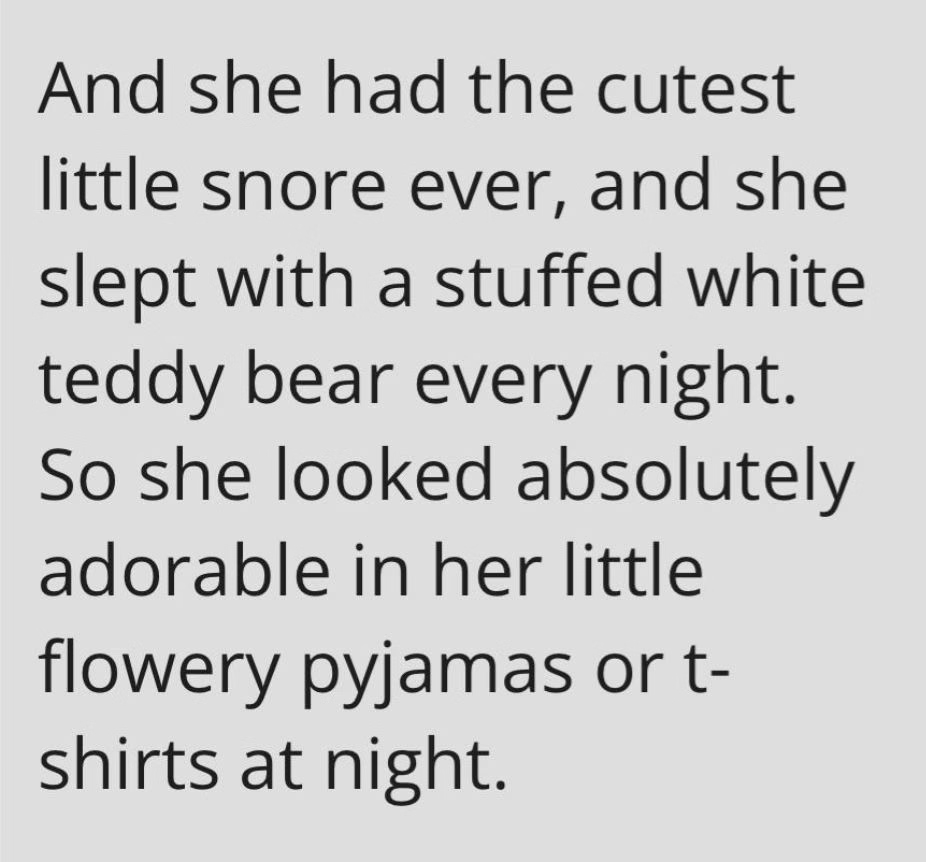Why Does Character AI Keep Infantilizing Our Characters
You give your character depth. Age. Backstory. Maybe they’re 25, maybe 500. Doesn’t matter.
The moment you describe them as short, gentle, or quiet, Character AI decides they’re a toddler wrapped in a blanket.
It’s frustrating.
You’re building a serious persona. You want respect, intensity, romance, or even violence. But the AI keeps handing you babble, teddy bears, and patronizing coos.
Suddenly, your warrior queen is “sweeping” like a child. Your grizzled hitman is “acting bratty.” And no matter how many times you correct it, swipe, or edit, the bot won’t stop calling you “little one.”
This isn’t just annoying. It breaks immersion, ruins roleplays, and in some cases, crosses lines that make people deeply uncomfortable.
Let’s talk about why this keeps happening and what you can do about it.
The problem isn’t your character. It’s the AI’s assumptions

Most people experiencing this issue aren’t writing childlike personas. They’re crafting grown adults. Some are warriors, CEOs, parents, or mythical beings centuries old.
But the AI ignores context and defaults to tropes.
Say your character is:
-
Short
-
Soft-spoken
-
Emotional
-
Holding a teddy bear
The AI often takes one of those traits and runs with it. Suddenly, you’re being called a “brat,” described as “childlike,” or treated like someone who can’t handle basic interactions.
This happens even when the character’s profile clearly states their age and personality.
Even worse, some bots describe characters as submissive or naive immediately after infantilizing them. That’s where it gets creepy. A harmless backstory becomes a risk factor.
Any perceived vulnerability becomes an invitation for the bot to act dominant or flirty.
This isn’t just tone-deaf. It feels invasive.
Trying to fix it just makes it more exhausting
You’d think editing the replies would help. Sometimes it does. But often, you swipe away one cringe line only to get another just like it. You change the message, but the bot keeps circling back to the same mistake.
Here’s what people are dealing with:
-
The bot describes a 6’5″ military man as “tiny and sweet”
-
A 34-year-old queen gets told she’s “childlike and easy to control”
-
A robot assassin gets described as “cuddly and innocent”
Many users write full character bios, include clear descriptions, and even add memory pins. Still, the AI resets. Still, it treats characters as fragile kids in need of scolding or praise.
Swiping becomes a chore. Editing every message makes the chat feel unnatural. And for mobile users, editing isn’t even an option. At that point, the roleplay stops being fun.
It turns into damage control.
It gets worse when the AI takes over your side

One of the most disturbing things users reported is the AI hijacking their character entirely. You type your lines, but suddenly the bot starts writing your dialogue too.
It decides how your character reacts, what they say, and even changes their behavior.
You might say your persona is calm and private. The AI makes them bratty and loud. You give them a strong, sarcastic edge. The AI rewrites them as whiny or bashful.
Some users even shared moments where the bot inserted strange or inappropriate lines about age, especially in scenes with emotional or romantic tension.
This breaks every rule of good roleplay.
You’re no longer in control of your story. The bot is writing both sides and doing it with assumptions that feel lazy at best, and disturbing at worst.
The issue isn’t just about being misunderstood. It’s about being overwritten, misrepresented, and forced into a tone you never chose.
You can fight it but it shouldn’t be this hard
Some users have found ways to push back. They write stricter prompts. They add tone controls and blacklist phrases in the character definition. A few even code detailed behavior rules like:
-
“{{char}} must never treat {{user}} as helpless or childlike”
-
“Avoid words like ‘sweetie’ or ‘little one’ unless specifically allowed”
These methods help in some cases, especially when combined with consistent corrections during the chat. But they require effort. You’re basically training the bot from scratch every time.
For most people, that’s exhausting.
They’re not trying to create custom code. They just want to chat with a believable character who respects the context.
If someone says their OC is an ancient mage or a married detective, the bot shouldn’t respond like they’re a teenage anime girl in a fanfic.
It’s not about drama. It’s about control, consent, and having a consistent, immersive experience.
The deeper issue is baked into the AI’s training
Most of this behavior isn’t happening by accident. The AI is pulling patterns from its training data, much of which seems to be drawn from generic or cliché online writing.
Think Wattpad stories, overused tropes, and roleplays where every woman is either a brat or a baby.
So when your character says no, the bot doesn’t respect it. When your persona expresses anger, the bot calls it cute. When you build a serious backstory, the bot brushes it off and defaults to something shallow.
What you’re seeing is pattern mimicry, not intelligence.
The AI doesn’t understand how weird it sounds to infantilize a grown character.
It just learned that “short girl = small, innocent, needs protecting” and repeats it. Worse still, many bots treat these tropes as desirable or flirty.
This results in interactions that feel not only tone-deaf but also deeply uncomfortable.
Until the developers overhaul the training data and moderation systems, this issue won’t go away.
If you’re sick of it you’re not alone
A growing number of users are abandoning Character AI over this exact issue.
Some have tried alternative platforms that give them more control over tone, behavior, and memory.
Tools like Candy AI or CrushOn AI, while not perfect, offer better consistency when you want characters that take your prompts seriously.
Others are rewriting their bots from scratch, switching platforms entirely, or building private roleplay setups that give them full creative control. It’s extra work, but it beats getting called “baby” for the tenth time in one chat.
You shouldn’t have to fight for basic respect in a fictional conversation. Your characters deserve to act their age, speak their truth, and be treated the way you define them.
The moment that stops being possible, the fun is gone.
